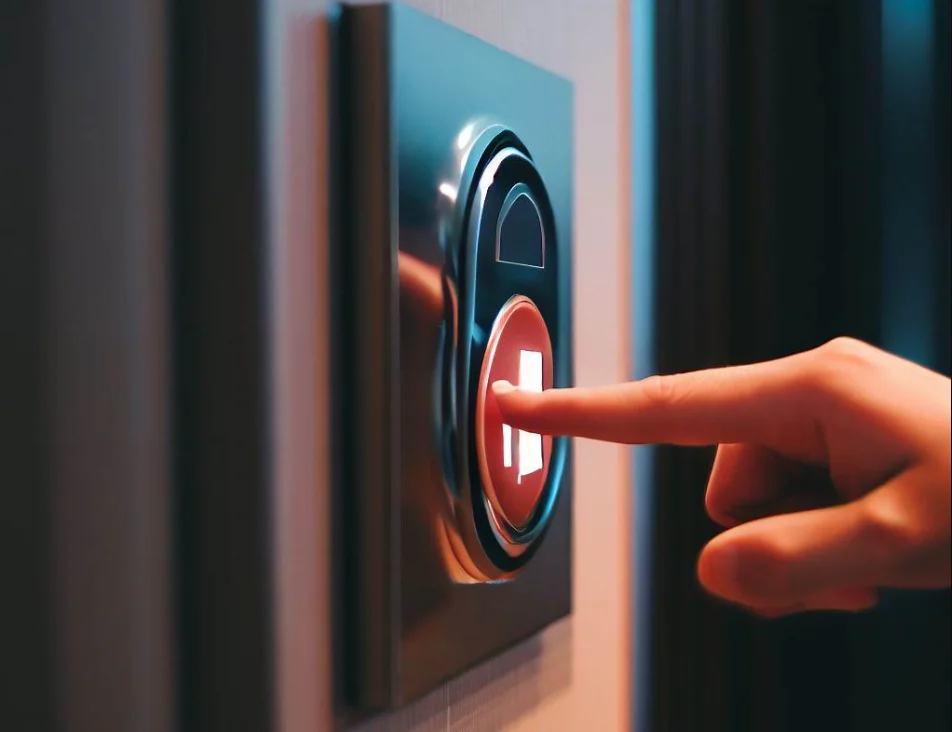The leisure and hospitality industry has long struggled with higher than average rates of workplace injuries and illnesses. According to data from the U.S. Bureau of Labor Statistics, around 3% of full-time workers suffered a nonfatal work injury in 2020 while employed in accommodation and food services. With around 140,000 people currently working in the leisure and hospitality sector, simple math tells us that a staggering 4,200 individuals may experience an on-the-job accident this year.
Yikes! No one wants to see their hard-working staff become a statistic. Thankfully, many common dangers can be mitigated with proper training and preventative measures. For instance, slips, trips and falls lead to a huge number of injuries in restaurants and hotels. However, staff can avoid slippery spills by quickly cleaning up messes and using wet floor signage. Proper footwear and lighting in stairwells also helps decrease fall risks. Furthermore, providing ladder safety training ensures employees know how to properly inspect, set up and climb ladders to access supplies on high shelves.
Additionally, heavy lifting and bending wrong can lead to back injuries for waitstaff and housekeepers. Providing carts, dollies and other assistive equipment reduces strain. Reminding staff to use proper lifting techniques and take breaks helps too. Furthermore, handling kitchen equipment safely prevents painful cuts and burns. Ensuring machinery guards are in place, knives are sharpened and hot pans are carried appropriately makes a big difference. Lastly, addressing workplace stress through training and support programs promotes mental health.
How can working in a hotel be dangerous for housekeepers?
Working in a hotel can be a challenging and potentially dangerous job, especially for housekeepers who are responsible for cleaning multiple rooms within a single shift. While many people work in hotels, housekeepers are often the most vulnerable, as they are frequently assigned to work alone in rooms with the door propped open behind them.
Despite the often solitary nature of their work, housekeepers are required to interact with guests, which can create unwanted and dangerous situations. Unfortunately, incidents of sexual harassment, indecent exposure, physical assault, and medical emergencies are all too common in the hotel industry.

What are some of the reported workplace dangers that housekeepers face according to their own accounts?
Housekeepers working in hotels face a variety of dangers in their workplaces, as reported in a survey conducted by a Chicago hospitality union in 2016. The survey included 500 women working in hotels and found that a shockingly high 59% of respondents experienced sexual harassment, while 49% experienced indecent exposure from guests. Unfortunately, housekeepers also sometimes face mistreatment from other workers or managers.
Some of the examples of reported workplace dangers encountered by housekeepers include physical assault, verbal harassment, solicitation for sexual favors for money, and indecent exposure. For instance, a guest may sneak up on a housekeeper and forcefully touch or hug them while they are working, which can be a scary and traumatic experience. Verbal harassment in the form of sexually explicit comments or mocking can also be distressing, and repeated threats from guests or co-workers can make a housekeeper fear for their own safety and ultimately quit their job.
In some cases, guests may solicit sexual favors in exchange for money, which creates an uncomfortable and dangerous work environment for housekeepers. Additionally, staff members providing room service or food delivery may encounter naked or exposed guests, which can be both uncomfortable and unpredictable.
These workplace dangers can have a significant impact on the mental and physical health of housekeepers, as well as their ability to perform their job effectively. It is crucial for hotels and other employers to take these dangers seriously and implement measures to protect their employees from harm. This includes providing training on how to handle difficult situations, creating policies and protocols for reporting incidents, and fostering a workplace culture that prioritizes the safety and well-being of all employees.
Promoting Workplace Safety for Hotel Staff
Hotel employees, especially housekeepers, can unfortunately face unsafe situations on the job. However, hotels have an obligation to provide a secure work environment. There are several best practices hotels can implement to better protect their staff:
Offer workplace safety training – Teach employees how to defuse tense situations, properly use equipment, spot hazards, etc. Roleplaying drills are very effective.
Improve visibility and lighting – Ensure hallways and floors are well-lit. Keep closet doors open when cleaning. Consider providing flashlights.
Check in frequently – Managers should periodically check on housekeepers as they work. A quick status update goes a long way.
Provide panic buttons – Portable, silent alarm devices allow staff to discreetly signal for help in an emergency. Response teams can pinpoint the employee’s exact location.
Keep doors locked – Only staff should have keycard access to guest floors during cleaning. Elevators can also be temporarily restricted.
Enforce zero tolerance policies – Make it clear that harassment, violence or discrimination will not be tolerated. Take all complaints seriously and investigate promptly.
Offer counseling – Having access to mental health services can help staff discuss traumatic events or chronic stress.
While risks cannot be fully eliminated, proactive safety measures drastically improve working conditions for hotel personnel. With the right precautions, both employees and guests can feel more secure.
